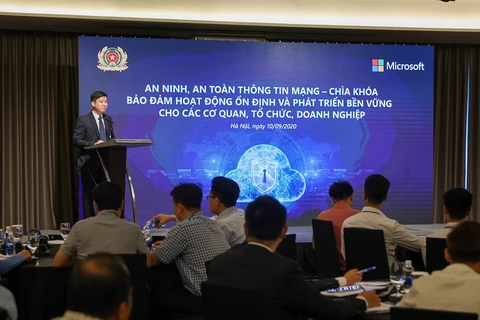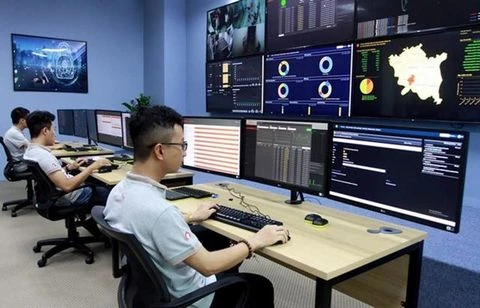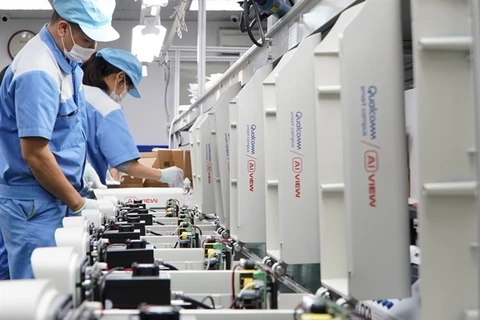 Kaspersky's Cybersecurity Weekend, which was held online for the first time, explores the impacts of social media activities on individuals’ personal identities and companies’ brand perceptions. (Photo courtesy of the company)
Kaspersky's Cybersecurity Weekend, which was held online for the first time, explores the impacts of social media activities on individuals’ personal identities and companies’ brand perceptions. (Photo courtesy of the company) HCM City (VNS/VNA) - Asia Pacific (APAC), a fertile land for social media, houses more than half of the total users worldwide and is at the centre of Facebook’s growth.
The latest numbers from German company Statista, which specialises in market and consumer data, show that East Asia has logged the most number of virtual network users at over 1 billion as of 2020 so far, with Southeast Asia and South Asia both trailing behind with over 400 million users, respectively.
As the region first hit by the COVID-19 pandemic, different forms of lockdowns have been implemented, eased and re-issued across APAC, putting forward uncharted opportunities for the internet and social media.
The rapid rise and ever-evolving usage of these platforms -- from posting pictures, sending messages, to becoming an expanding marketplace -- makes it essential to examine this new economic frontier.
Speaking at Kaspersky’s sixth Cybersecurity Weekend recently, Vitaly Kamluk, Director of Global Research and Analysis (GReAT) for APAC, at Kaspersky, said: “One of the most visible effects of this pandemic is how it forced everyone, from individuals to the biggest companies, to shift a lot of their activities online.
“This dependence, triggered by our need to secure our physical health, also pushed us to increase our social media use, either to connect with our distant loved ones, to give support to our community, to entertain ourselves, or to get hold of products and services that we need. Parallel to this trend is the opening of wider doors for cybercriminals to exploit.”
Aside from the heavier reliance on the internet, the pandemic situation also provided an effective tool for cybercriminals – a “hook” that could make one click a phishing email, share a malicious link, forward an infected image, and more.
“From detecting and analysing 350,000 unique malware samples a day pre-COVID, we currently see a total of 428,000 new samples per a 24-hour window.
“Add the geopolitical events across APAC, the uptick on e-commerce and e-wallet adoption, the continuous remote work set-up and online learning, and the emotional and psychological stresses of the situation, the 2020 threat landscape seems to favor cybercriminals.
“However, hope is in our hands as we are the controller of our online activities. Improved vigilance to protect our digital identities and assets is necessary,” Kamluk said.
Rafizah Amran, deputy chief marketing and communication officer for Prasarana Malaysia and an integrated marketing communications and public relations specialist, said: “From my experience, the digital reputation of a company is important. Our hyperconnected community made it easier for consumers to voice their opinions in favour or against our products and services.
“This forced us, marketers and companies, to focus beyond closing sales and running campaigns, and to know our end-users, put customers’ experiences in the middle, and involve them in our decision-making process. Most importantly, in this era of quick postings and virality, it is important for brands to be very honest and be excellent listeners.”
With the theme “Secure Your Digital Reputation”, the Cybersecurity Weekend explored the impact of social media activities on individuals’ personal identities and companies’ brand perceptions.
The annual media conference, which was held online for the first time, was attended by Kaspersky’s elite researcher, an industry expert, and journalists from the 12 APAC countries./.
VNA























